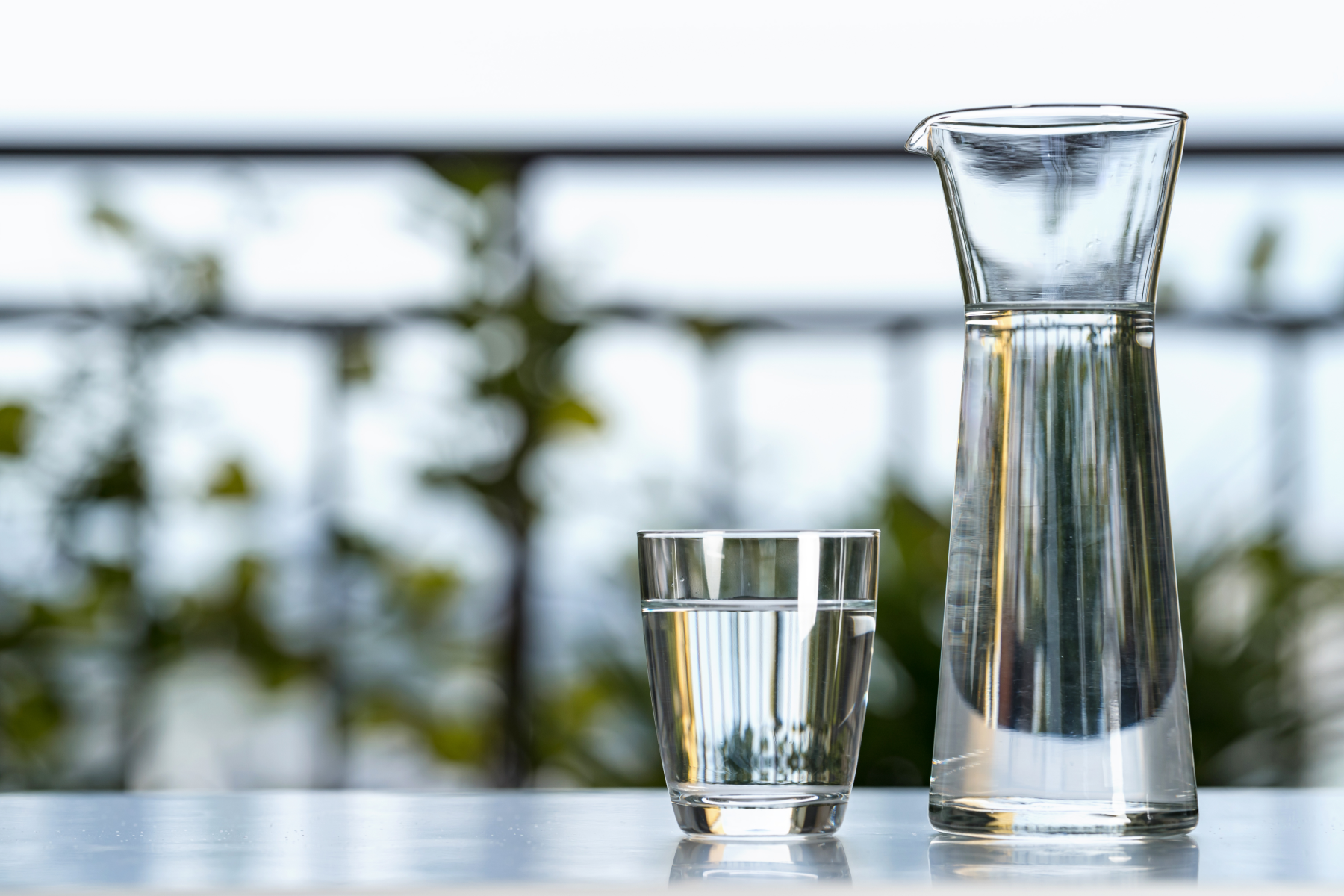How Much Water Do You Need?
Published August 15, 2022
Published August 15, 2022

Our bodies are 60% water by weight. It’s something we need every day. But how much is enough? It’s both simpler and more complex than you might think.
Let’s start with the 8x8 rule. It’s been around forever and says to drink 8 glasses of water, 8 ounces each, every day. Simple, easy to remember, and based on zero science. None. In fact, spend long enough time researching and you’ll find rules saying to drink anywhere from 32 to 124 ounces a day.
The challenge is that the water you need depends on a lot of factors, like:
Here’s the good news: your body is really good at telling you when you’re thirsty. Listen to it, drink when it says to, and keep an eye on your pee. Is it clear or pale yellow? You’re good. Dark? Strong odor? Up your water intake. That’s about as simple as it gets.
Fair enough. Here’s the rule we like. Take your weight in pounds and cut in half — that’s how many ounces of water to drink each day. So if you weigh 150 pounds, aim for 75 ounces of water. Drink it throughout the day to keep your body at an even level.
Here’s the key. Use that number as a starting point. Do it for a few days and see how you feel. Check your pee color and adjust accordingly.
That’s not a trick question. Some foods are loaded with water, like watermelon, peaches, oranges, cucumbers, lettuce, zucchini, celery, and plain yogurt. That can account for as much as 20% of your water intake. So if you’re shooting for 100 ounces, you can knock out 20 of them with food.
Your other drinks count too. Just try to keep them healthy. Instead of juice, add slices of lemon, cucumber, or berries to your water. Swap in sparkling water for soda. Drink kombucha in place of an energy drink or black coffee instead of a mocha latte.
For some people, caffeine means more trips to the restroom. But you’d have to drink at least 5 cups of coffee a day for it to really affect your water needs. Short story: coffee and tea count. If they make you pee, drink a little more water.
Throughout the day, you lose water through sweat, going to the bathroom, and plain old breathing. When you lose more water than you take in, it’s called dehydration. You might not notice the impact, but being just a little short on water can make a difference in your energy level and mental sharpness.
With certain health conditions, like chronic kidney disease or congestive heart failure, you need to watch your water more closely. In those cases, your doctor might tell you to drink less water than average.
If you’re generally in good health though, it’s really hard to get too much water. Be sure to talk with your doctor to find out what a healthy water intake looks like for you.
If you need support with healthier eating, your care team is ready and waiting! Book a visit today or speak with your health guide to get personalized tips. Not a member yet? Get started by signing up, or calling us at (855) 869-9284 to see if our continuous, coordinated care model is right for you.